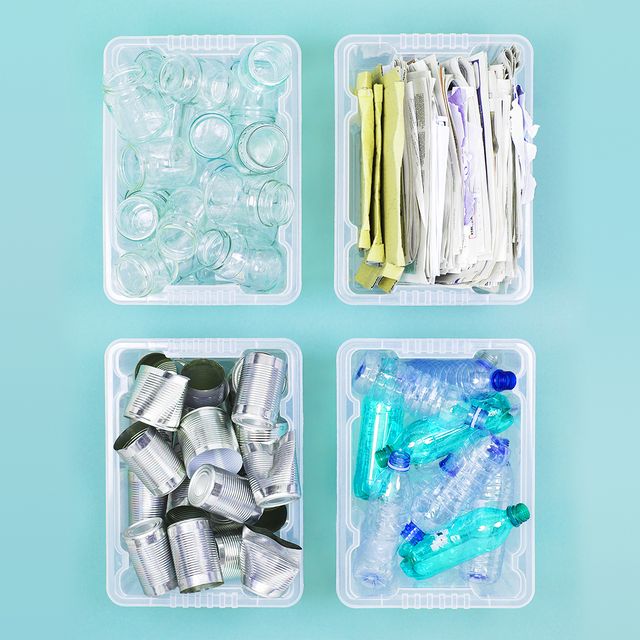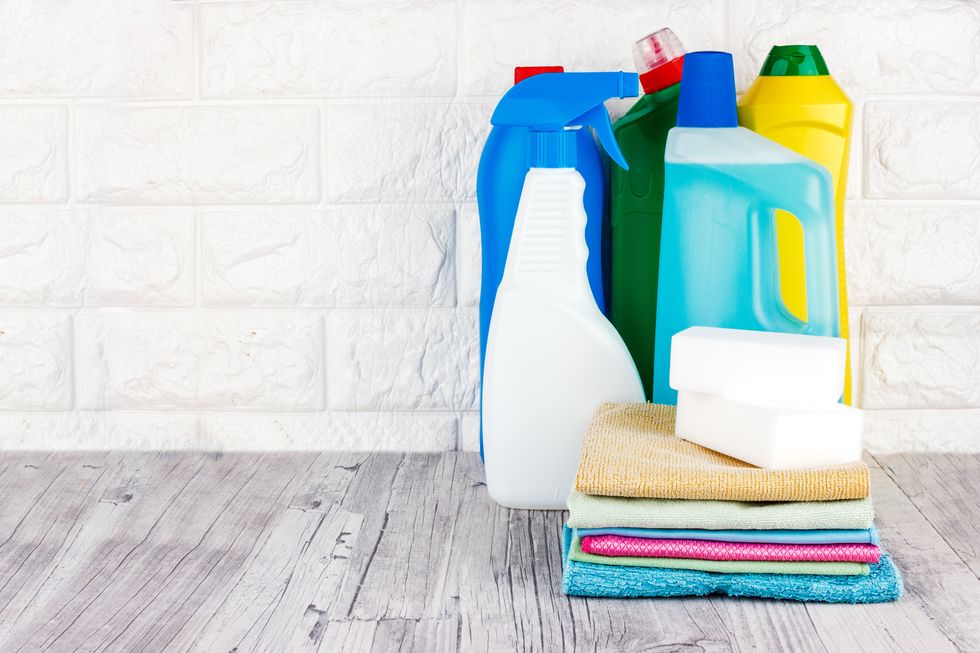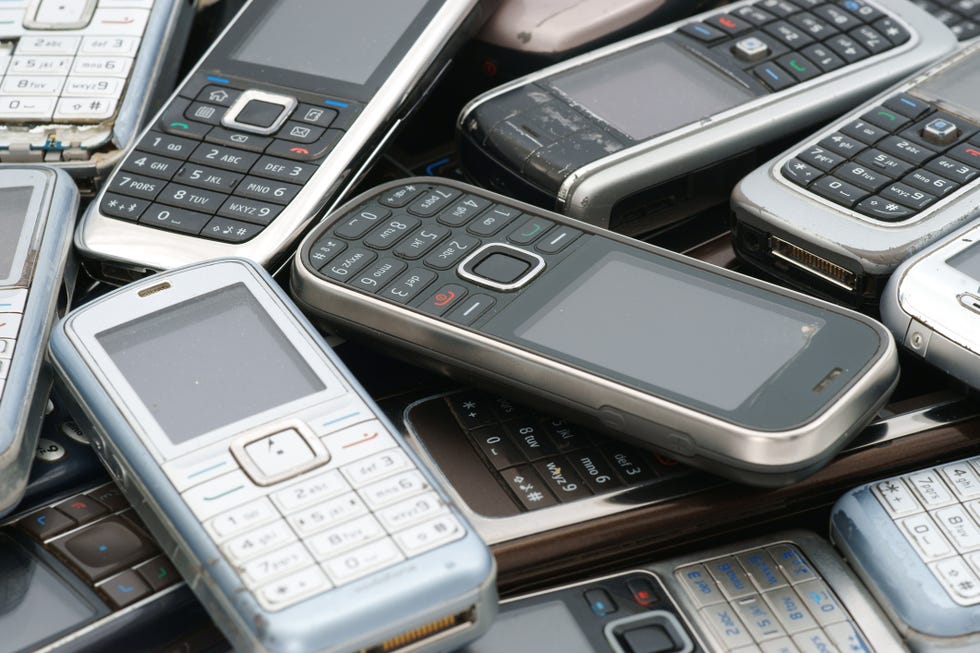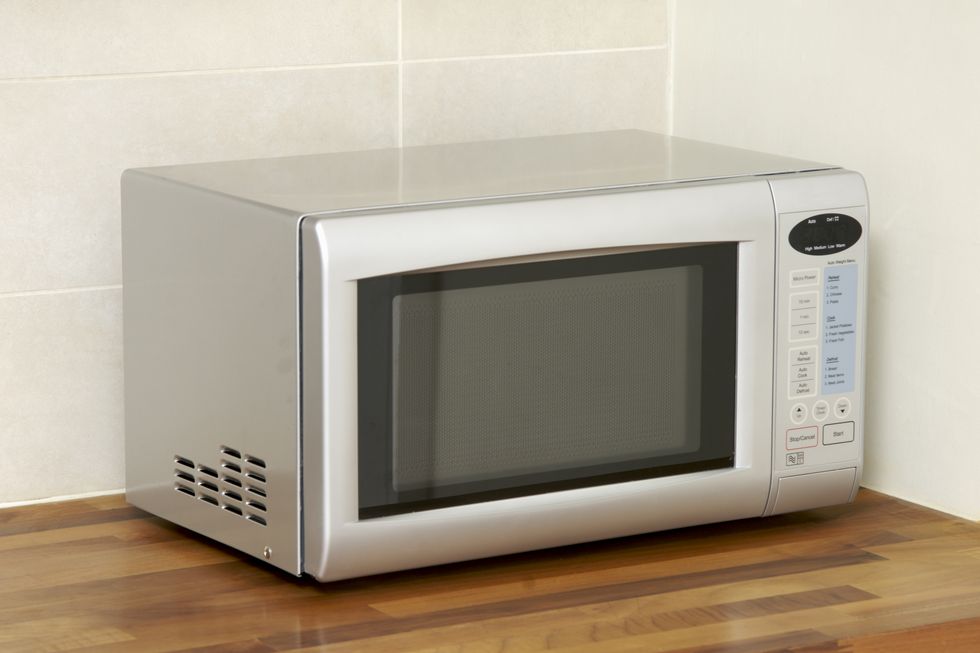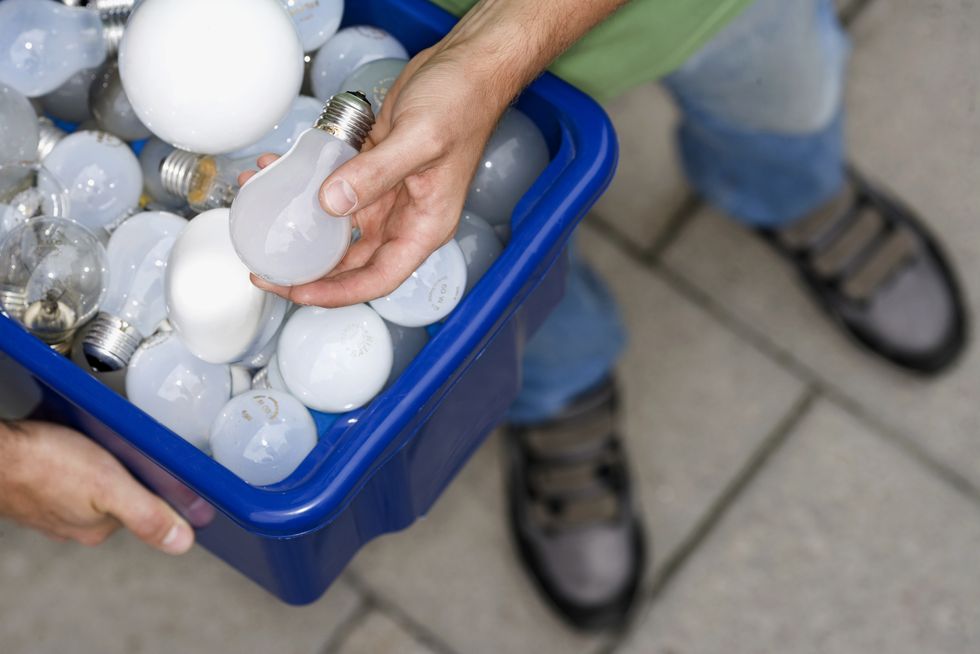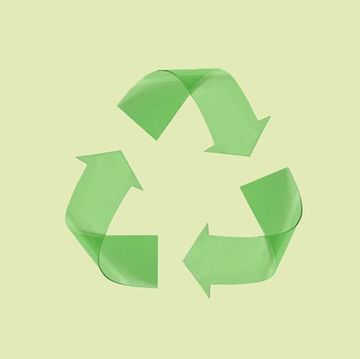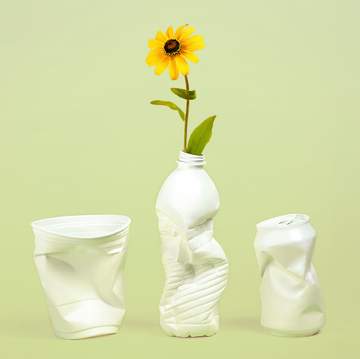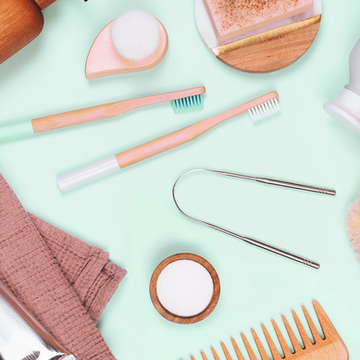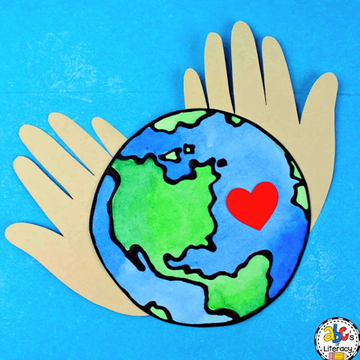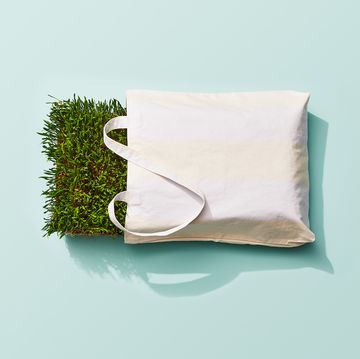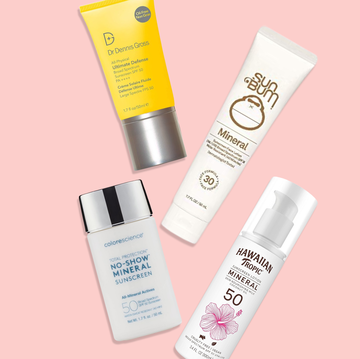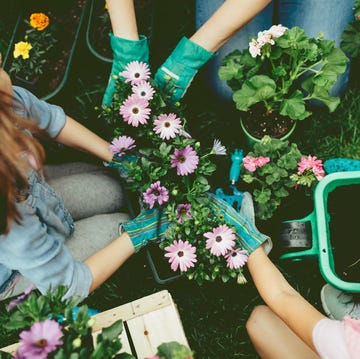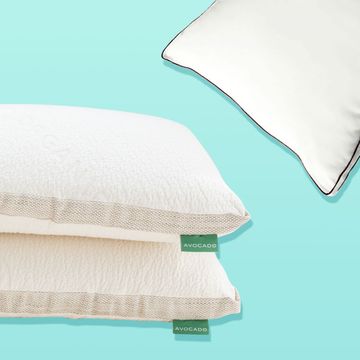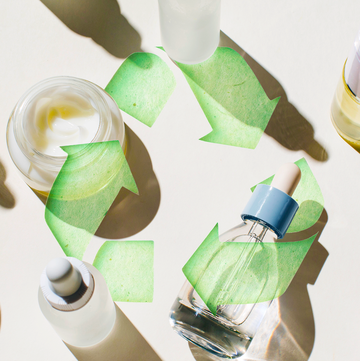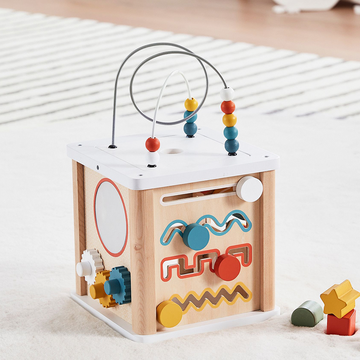The average American produces 4.51 pounds of trash per day, according to the Environmental Protection Agency (EPA) — and only 35% of that waste gets recycled or composted. That's nearly 140 million tons of waste going to landfills every year! While most of us know to put our cans and bottles in the blue bins for recycling, disposal can get a little trickier when it comes to other items such as appliances, electronics, and old medications — which is why, when you're getting to work on some spring cleaning, it's so important to know how to dispose of these items properly.
Of course, before throwing something away for good, a solid first step is to always donate items (in good, working condition) to nonprofits and charities like Goodwill, Habitat for Humanity, the Salvation Army, or local charities; or list them on Craigslist, eBay, or even Facebook. But if it's time your items really hit the curb, it's important to know how to dispose of everything in an environmentally friendly way; after all, even a tiny bit goes a long way when it comes to being green. So if you're wondering what exactly to do with those old batteries or outdated electronics you find as you're cleaning out your house this year, here's a handy A–Z guide on everything you can responsibly dispose of:
Batteries
Batteries of all types can be recycled. According to Duracell, regular single-use alkaline batteries (such as ones that power our remotes) can safely go in the trash everywhere except California; however, a more eco-friendly way of disposal is to recycle them at community programs, workplaces, or nearby recycling centers that accept them.
Rechargeable batteries (such as ones in cellphones and other electronics), however, should not be thrown out in the trash and should be recycled, as they may contain hazardous chemicals. To find a nearby recycling site for all types of batteries, be sure to check Call2Recycle and Earth911.com — and before you recycle them, make sure to place non-conductive clear tape over the ends or the terminals of the battery to ensure safe recycling.
Books
If you're trying to get rid of some unwanted books, first consider donating them — many charities, libraries, schools, and even prisons and shelters accept donations for used books year-round. Some great organizations — many of which have nationwide drop off locations — include Better World Books, Books For Soldiers, and Books For Africa (as well as secondhand stores like Goodwill or The Salvation Army). Of course, you can also try selling them on sites like Amazon or BookScouter, especially if you have textbooks.
If your books are battered beyond hope, however, sometimes they can be recycled. According to Earth911.com, you can recycle the entire book if it's a paperback, but if you're trying to dispose of a hardcover book, you'll need to remove the cover binding before recycling them. And remember that if your book has gotten wet (or if the papers have turned tan or brown), they should actually be thrown away with your regular trash instead, as this unfortunately makes the material non-recyclable.
Cleaning Products
The best way to dispose of cleaning products is to use them! If that's out of the question, it's important to read the labels to figure out the right way to toss them — so be sure to check the bottle's instructions on proper disposal. Hint: In most cases, water-soluble products (like bleach) can be flushed down the drain or toilet with running water, and solid cleaning products like bar soaps and scouring pads can go in the trash. And of course, in recycling the bottles for any cleaning products that can be disposed down the train, be sure to empty all of the unused product and give it a rinse or two before tossing it in the recycling bin.
Coffee Pods
If you love using your single-serve machine, you can take steps to eliminate the environmental impact. Nespresso offers capsule recycling at more than 122,000 places around the world. Visit any Nespresso boutique or partner store (including Sur La Table and Williams-Sonoma) or pick up a free pod-recycling bag online that comes with a prepaid UPS shipping label.
For K-Cups, some varieties (including the Green Mountain kind) can get recycled, though the company is starting to transition into having all of their pods be recyclable by the end of 2020. Check for a #5 recycling sign on the bottom first, before removing the foil lid and throwing that out along with the grounds (though the filter can remain). Then, recycle the empty cup — though be sure to check locally first, as K-cup pods are not yet recyclable in all communities.
Electronics
- Cell Phones: Before getting rid of your old cell phone, first delete all of your personal information using a factory or hard reset option. (Check the manufacturer's website for info on how). You'll also want to remove or erase the SIM or SD card. Then you can trade in, donate, or recycle your device — usually right at the store. For example, AT&T runs the charity Cell Phones for Soldiers that donates devices to troops overseas. You can also look for e-cycling locations in your area using this database, including private recyclers, nonprofits, and other programs.
- TVs: Don't toss your old TV or monitor in the trash! Some old sets contain toxic materials like lead and count as hazardous waste. Best Buy, LG, Vizio, Samsung, and Sony all offer TV recycling programs (either in-store, event, drop-off site, and haul away options). You can also try contacting your local sanitation department for guidance.
- Laptops and Computers: Check out Dell Reconnect, World Computer Exchange, and eBay for Charity if you're interested in donating your device. Similar to TVs, you'll want to recycle these responsibly, so get in touch with the manufacturer or retailer to see if they'll help out.
Eyeglasses
Before tossing your old, outdated eyeglasses, first consider donating them to organizations such as OneSight, Lion's Club, or New Eyes, which take old glasses to distribute them to those in need. As glasses can be made up of several different materials, they are a bit challenging to recycle — so donation might actually be your best (and most sustainable) bet. If you do have to dispose of them, however, make sure to separate the lenses from the frames. If your frames are made of aluminum, you may be able to pull them apart (and place them within a larger aluminum container) for curbside recycling. Of course, make sure to double check first by contacting your recycling center or local council.
Household Appliances
- Washers and Dryers: If they're still in good working order, donate them to a shelter or home that would likely benefit. If you're buying new laundry appliances, ask the manufacturer whether they're certified to recycle your old ones. If all else fails, call your local waste management office to see whether you can leave them on the curb, or check out Earth911.com for more options.
- Refrigerators and Freezers: Leave the disposal of these hefty appliances to the professionals. Contact your local department of public works to schedule the removal, or use this EPA Responsible Appliance Disposal (RAD) page to find a partner program near you. The costs for this service will vary. According to the EPA, removal can cost anywhere from $10 to $50, but you may receive a rebate for disposing of your appliance responsibly. Score!
- Microwaves: Some municipalities let you recycle broken microwaves as scrap metal. (Electronics recyclers will do the same for a small fee.) You could also bring it to a bulk items or appliance recycling day hosted by local authorities.
Kitchenware
If you're looking to toss out your old pots and pans and other cookware, consider donating them to secondhand stores like Goodwill and Salvation Army, or even listing them on websites like Craigslist to find them a second home. For kitchenware that's now unusable, however, recycling is an option; in fact, you might be able to recycle your metal pots and pans with curbside recycling if your program accepts "scrap metal." However, most curbside recycling programs won't accept these items, so you should try to find a scrap metal recycler near you to dispose of them properly.
As for kitchen utensils, those made from metal will have the same recycling options as metal cookware, but if your flatware is made from plastic, it's important to know what type of resin they're made of in order to determine their recyclability. Wood spoons and other wooden flatware, however, can usually be composted with your organic waste.
Light Bulbs
Some states and jurisdictions may actually require recycling light bulbs, so check your local laws before tossing these in the trash. As bulbs often break when they're thrown away, they can release mercury into the environment. Try Earth911.com for info on how to safely get rid of these (plus other hazards, like paint and pesticides) near you.
Mattresses
Some cities will collect your mattress if you put it out (sealed in a plastic bag to prevent bedbugs) with your regular garbage for bulk collection. If you're planning on buying a new mattress, many retailers will also haul the old one away for you.
If it's gently used and in good condition, you could try donating it to a nonprofit (like Habitat for Humanity, the Salvation Army, or a local homeless shelter). Just double-check that health department regulations in your area allow it. If not, try the site Bye-Bye Mattress to find a recycling center near you or hire a removal service like 1-800-GOT-JUNK? to do the dirty work for you.
Medications
It's important to dispose of expired or unused medication as soon as possible to prevent others from accidentally taking or intentionally misusing them. To dispose of them safely, use this DEA Diversion Control Division search engine to find a certified disposal site near you (including some pharmacies). Your local law enforcement agency may also host periodic collection days.
If you can't find one, you can also dispose of some medications in the trash following this FDA-suggested method:
- Mix the medicines (do not crush) with an unpalatable substance like dirt, cat litter, or old coffee grounds.
- Place the mixture in a sealed plastic bag.
- Throw the bag in the trash.
- Scratch or black out all personal information on empty pill bottles or packaging before throwing them away.
Note: The FDA recommends flushing a few specific medicines down the toilet when a take-back option is not available due to the potentially fatal risk of someone taking them accidentally. These include hydrocodone (e.g., Vicodin) and Oxycodone, and a few others. You can see the full list here or check the label for specific disposal instructions.
Water Filters
Many household water filters can be recycled through recycling programs from the manufacturer or retailer. Brita encourages their filters to be sent to their recycling program with TerraCycle — just collect your used filters (after drying them out for three days) as well as Brita pitchers and bottles in a garbage bag, box it up, and then drop it off at a UPS location after filling out a mailing form on the Brita website to get a prepaid shipping label. By doing so, you can even earn Brita points to be redeemed for exclusive rewards!
For other water filter brands, you can contact the manufacturer to find out if they offer a recycling program, or use the Zero Waste Box program from TerraCycle that will safely recycle all of your water filters (as well as air filters) for you — though you'll have to purchase a box to ship out to their program.

Caroline is a writer and editor with almost a decade of experience. From 2015 to 2019, she held various editorial positions at Good Housekeeping, including as health editor, covering nutrition, fitness, wellness, and other lifestyle news. She's a graduate of the Medill School of Journalism and dreams of the day Northwestern will go back to the Rose Bowl.
Hannah Jeon is an Associate Commerce Editor at Prevention, where she covers expert-driven commerce content for all things health, beauty, and wellness. Previously the Editorial Assistant at Good Housekeeping, she earned her bachelor’s degree in creative writing and psychology from Johns Hopkins University. When she’s not on the hunt for all the best products online, you can often find her trying out new food spots in New York City or clicking away behind a camera.
